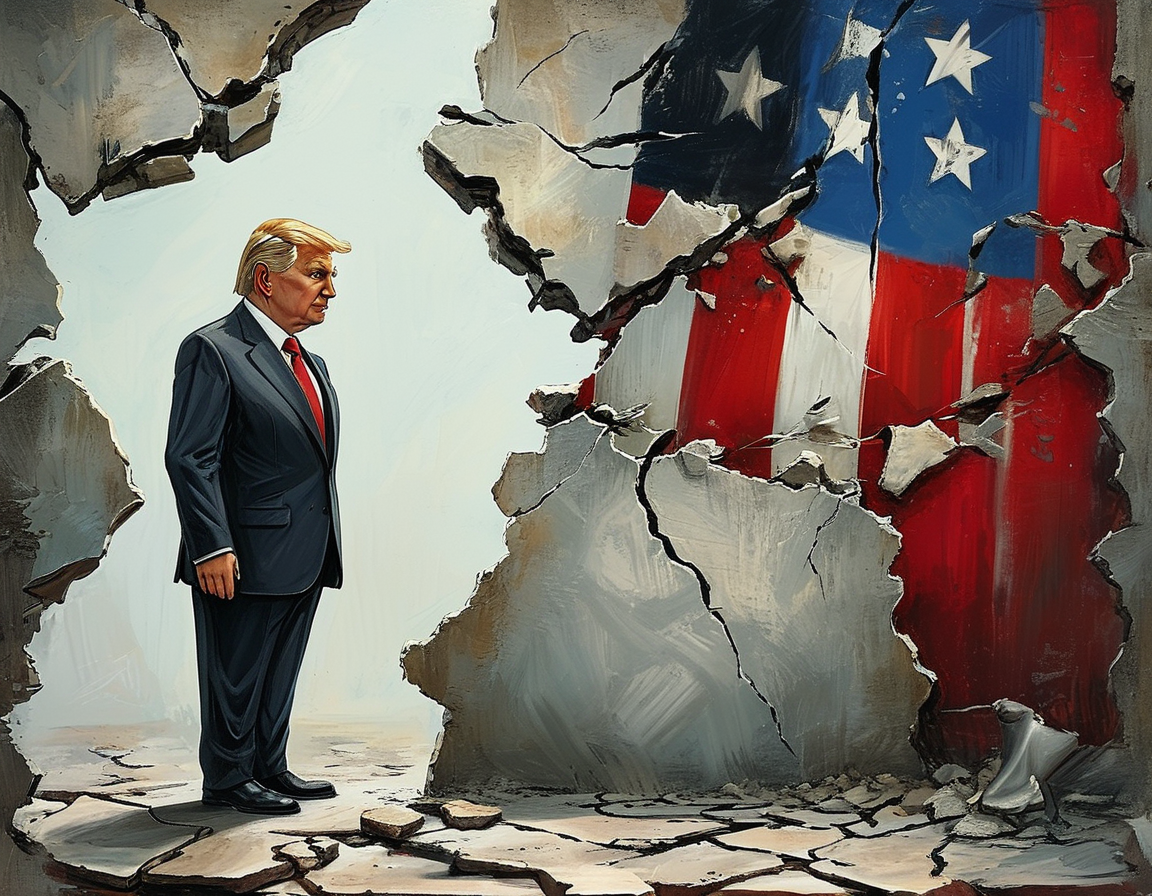
**Trump and the Unraveling of the World Order**
From the ruins of World War II to today’s shifting tides, the world has become a stage for a new conflict. Donald Trump’s presidency has ushered in a seismic change. His actions challenge everything we thought we knew about American leadership and global stability.
One cannot help but wonder: what does ‘Trumpism’ truly mean for the West? Since March 25, 2025, experts warn that we now face the gravest security crisis. It feels like a chapter from a history book we never wanted to read again. Yet here we are.
Remember 1947? A war-weary Britain told the U.S. it couldn’t support Greece against the communist threat. President Harry Truman took charge, protecting free nations. The Truman Doctrine, the Marshall Plan, NATO—all sprung from that moment. America was the shield for Europe, but now, that shield feels like it is cracking.
**NATO’s Foundations are Shaking**
Fast forward to 2025. Donald Trump is the first president to raise questions about America’s global role. He has made it clear he will not defend allies who don’t pull their weight. This stance rocks the core of NATO—the principle that an attack on one is an attack on all.
What must it feel like for European leaders to watch this unfold? It is one thing to worry about external threats. But to question your strongest ally? Such uncertainty can be unnerving. Leaked communications from Trump’s administration are particularly telling. Officials viewed financial support for Europe as “pathetic freeloading.” Ouch.
As Trump’s term progresses, the ramifications become clearer yet more complex. Concessions to Russia regarding Ukraine show a willingness to gamble with geopolitical stakes. If Europe was nervous before, how must they feel now? Trump is reshaping a landscape that can either protect or undermine their future.
**The New Reality for Europe**
So, what happens now? Europe’s leaders face unprecedented risks. For decades, they relied on U.S. military power. But recent cuts mean defense budgets have dwindled. Britain has slashed its spending by nearly 70% since the Cold War. Imagine trying to find your footing on shaky ground!
Eastern European nations certainly feel the Russian threat looming large. Still, the consensus erodes as you move west. Germany’s Chancellor Friedrich Merz talks big about military independence. Yet, without a unified defense industry, can Europe stand strong? It echoes the age-old question: united we stand, divided we fall.
**Russia Seizes the Moment**
Then, there’s Russia, watching and waiting. Vladimir Putin sees an opportunity to push boundaries. He declares NATO’s weakening a personal victory. It’s chilling to think how a leader might exploit a global vacuum to serve their interests. Trump seems to be playing into that hand, unwittingly for some, perhaps knowingly for others.
How did it reach this stage? The tug-of-war between American domestic politics and European stability has become stark. Trump’s foreign policy seems as shaped by culture wars at home as it is by traditional geopolitical aims. Europe is left to fend for itself as a great power play sweeps in.
**The Questions Left Hanging**
Now comes perhaps the most crucial question: can Europe unite? Defense spending must increase if they are to chart a safe course. But how can nations set aside longstanding national interests to protect themselves?
The collective anxiety hangs in the air—can Europe establish its own future? Or remain dependent on an unpredictable ally? The stakes have never been higher. The comfort of once-dominant American leadership feels elusive in this new world order.
As we reflect on the unfolding chaos, one thought lingers: what will the map of tomorrow look like? It’s murky at best, but listening to the voices rising from Europe may offer clues. They hold the power to mold their destiny, even without the U.S. There’s hope—albeit flickering—among the rising challenges and historical echoes.
Leave a Comment